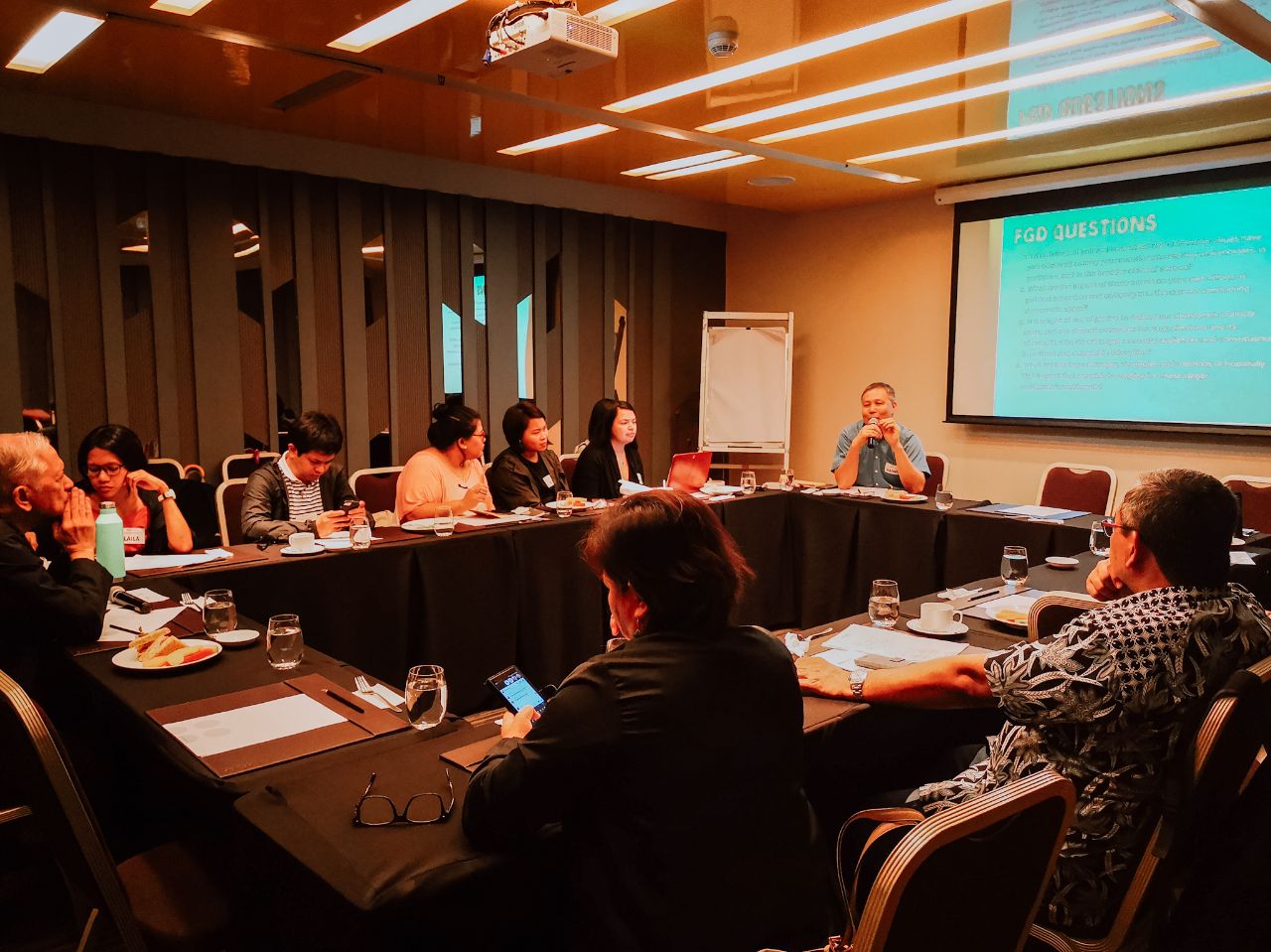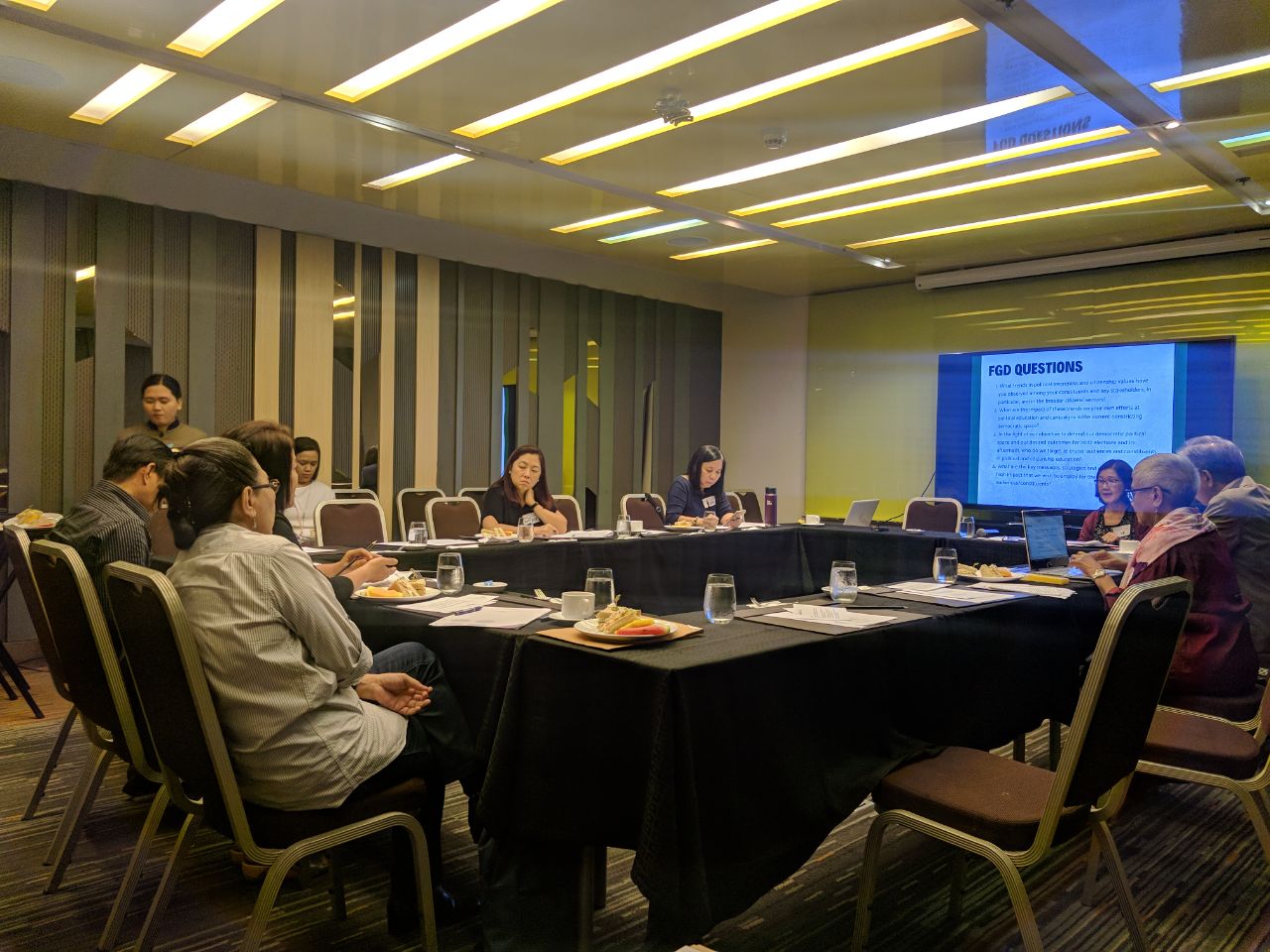As part of efforts to address the worrying signs of democratic backsliding in the country, INCITEGov gathered in a round table discussion on June 29 stakeholders from the basic sectors, political and pro-democracy groups, young professionals, millennials, and students to talk about the current trends on political awareness and citizenship values among Filipinos, especially the youth.
INCITEGov Board Member Randy Tuaño stressed the need to “identify appropriate political and citizenship education strategies for the new decade.”
“INCITEGov is an institution that believes that improving the understanding of the dynamics of politics would lead to appropriate strategies to strengthen governance that would enable development outcomes,” he said.
To ensure that all bases will be covered, the participants were divided into two groups: the millennials, composed mainly of students and young professionals; and the “milleniors,” with members coming from the basic sectors, political parties and democracy and social change groups. Tuaño and fellow Board Member Veronica Villavicencio served as the moderators for each group.
The discussion focused on the following questions:
1. What trends in political awareness and citizenship values have you observed among your constituents and key stakeholders, in particular, and in the broader citizens’ sectors?
2. What are the impacts of these trends on your own efforts at political education and campaigns in the current constricting democratic space?
3. In the light of our objective to defend our democratic political space and our desired outcomes for 2022 elections and its aftermath, who do we target as crucial audiences and constituents un political and citizenship education?
4. What are the key messages, strategies and methods of hopefully high impact that we wish to employ for these target audiences/constituents?
The opinions from both groups touched upon the gap between the older and younger generations. They also discussed the influence of social media and popular culture - drawing both the advantages and disadvantages.
Shebana Alqaseer of Young Pinays said, “It is easier to recruit people when the topics are about the things we experience and can relate to. For older generations, the political is personal. For younger groups, the personal is political.”

INCITEGov Treasurer Randy Tuano facilitated the discussion with the millennials.
“However, there has been an emergence of the so-called ‘slacktivist.’ These are the people who care and don’t like what’s happening, but choose not to go out. They post on social media, but their efforts are only up to there,” she added.
In the “milleniors’” room, Angge Gregorio who is a faculty member of the Ateneo School of Government (ASOG), echoed the sentiments of the participants in the other group. “Social media beleaguer you into a small world,” she said.

INCITEGov Board Member Ve Villavicencio facilitated the discussion with the milleniors.
On the other hand, Hector Soliman, INCITEGov Board Member, saw the opportunity in the use of social media in disseminating relevant societal issues. “Every death caused by the administration must be reaped into a human rights discourse,” he said.
In the millennials’ group, Arjan Aguirre from Ateneo de Manila University’s political science department spoke of the younger generation’s reliance on information and communications technology (ICT). “This is the current trend when it comes to political awareness. The instantaneous flow of information on the internet is more interesting to the young people compared to hard copies or moving images of documentaries.”
On the subject of non-governmental organizations (NGOs), INCITEGov chairperson Teresita Quintos-Deles reaffirmed the need to connect the discourse to a specific sector’s line of work. She reiterated that non-government organisations (NGOs) must invest full-time on social issues.
“Having time has become a challenge to many NGOs. Add to that the fact that sector and development NGOs are ageing,” Deles said.
Deles also mentioned the difficulty in putting them into a self-reflection mode since they are very confined in their own projects. “We need a certain level of trust from NGOs for them to go out. As for the younger generation, we know that they are drawn by events, hence there is no need to push them to become a member in the form of recruitment.”
Gregorio surmised, “It’s no longer just advocacy. There must always be self-reflection.”
By John Michael Mago